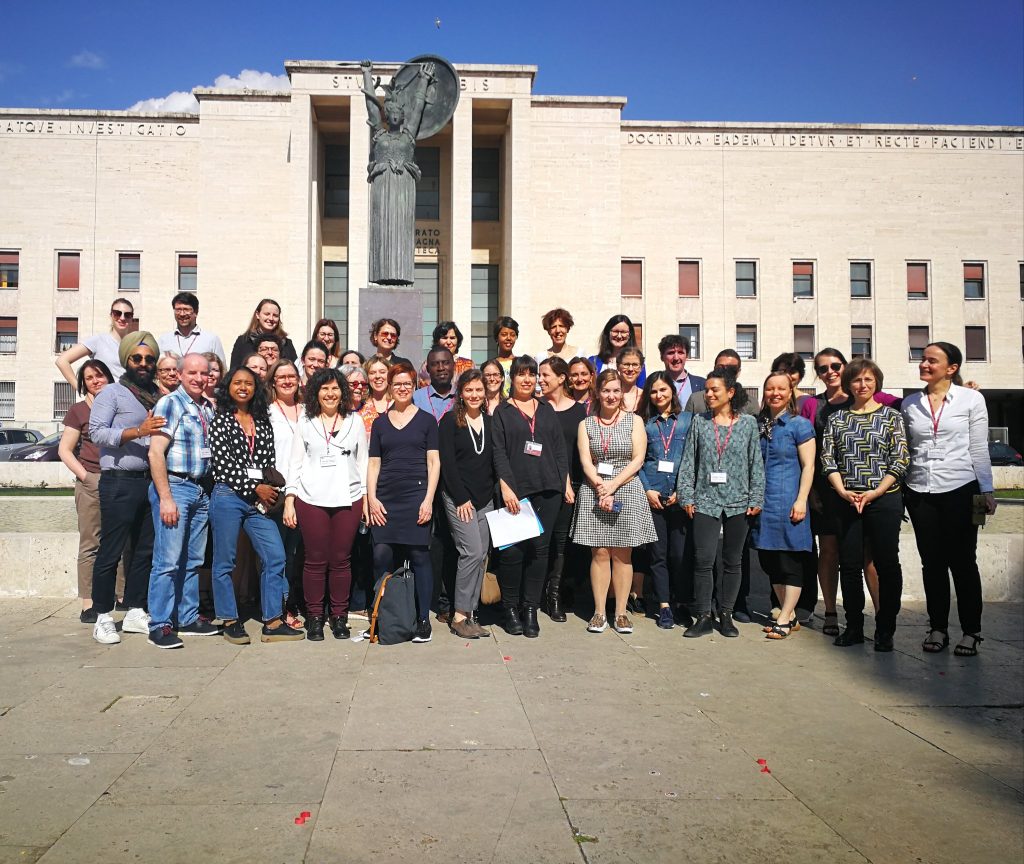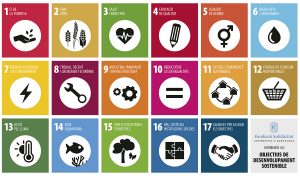A web page puts together experiences and information that Higher Education Institutions and entities working with refugees have exchanged during the project’s training week, in Rome.

The European project inHERE (Higher Education Supporting Refugees in Europe), in which the University of Barcelona takes part, has celebrated, from April 16 to April 20, 2018, a project staff training week on “Integration of Refugees: the Role of Universities” at La Sapienza University of Rome.
During the meeting, more than 50 higher education institutions and organisations related to refugee integration into higher education, from 19 countries, have exchanged experiences, testimonies and other resources in terms of University access and socio-economic integration of refugees. All training materials and presentations are available on the project website:
inHERE training resources
Among these resources are the experiences of the University of Barcelona, which presented its “Support program for refugees and people from areas in conflict” and the “Protocol for access and admission of students beneficiaries of international protection to undergraduate degrees, master’s degrees and own master’s or postgraduate degrees“.
With a view to overcoming challenges and enhancing their own institutional activities for refugee inclusion, the training participants have developed a message to policy makers and university leadership in Europe, which will be the basis for upcoming project activities:
Inclusive Europe Today, Powerful Europe Tomorrow
Forced and voluntary migration are a continuous feature of our times, not short-term phenomena. Against this background, as a country as well as a higher education institution, it is a privilege to be inclusive. The potential contribution of refugees and migrants to our societies can be a clear gain for all of us.
In order to fully realise this potential, policy makers should develop a holistic integration framework, with regulation that considers the role of education, human rights, and human dignity. Governments should encourage the harmonisation and streamlining of procedures to ensure access to education on all levels, commencing with the learning of local languages as a matter of integration. Universities are committed to welcoming refugees. Good practice initiatives exist across Europe and they require not short-term, but permanent, accessible investment to support their sustainability.
Higher education systems have to be open and non-discriminatory. Effective inclusion of refugees into higher education relies on a long-term strategy linked to the university’s third mission and its social responsibility. This goal needs institutionalised and sustainable structures with refugees at the centre, as well as a commitment and involvement of the entire university community.
Therefore, we call upon European societies to commit in the long-term to support refugee inclusion through education.
inHERE project
Co-funded by the European Union, through Erasmus+ program, the inHERE project seeks to create opportunities that ease the access and integration to the European Higher Education Area for refugees.
This is a project coordinated by the Mediterranean Universities Union (UNIMED). Apart from the University of Barcelona, other members of the inHERE are the European Universities Association (EUA), La Sapienza University of Rome and Campus France. The United Nations High Commissioner for Refugees (UNHCR) is an associate member.
This news is related to the following SDG of 2030 Agenda:









